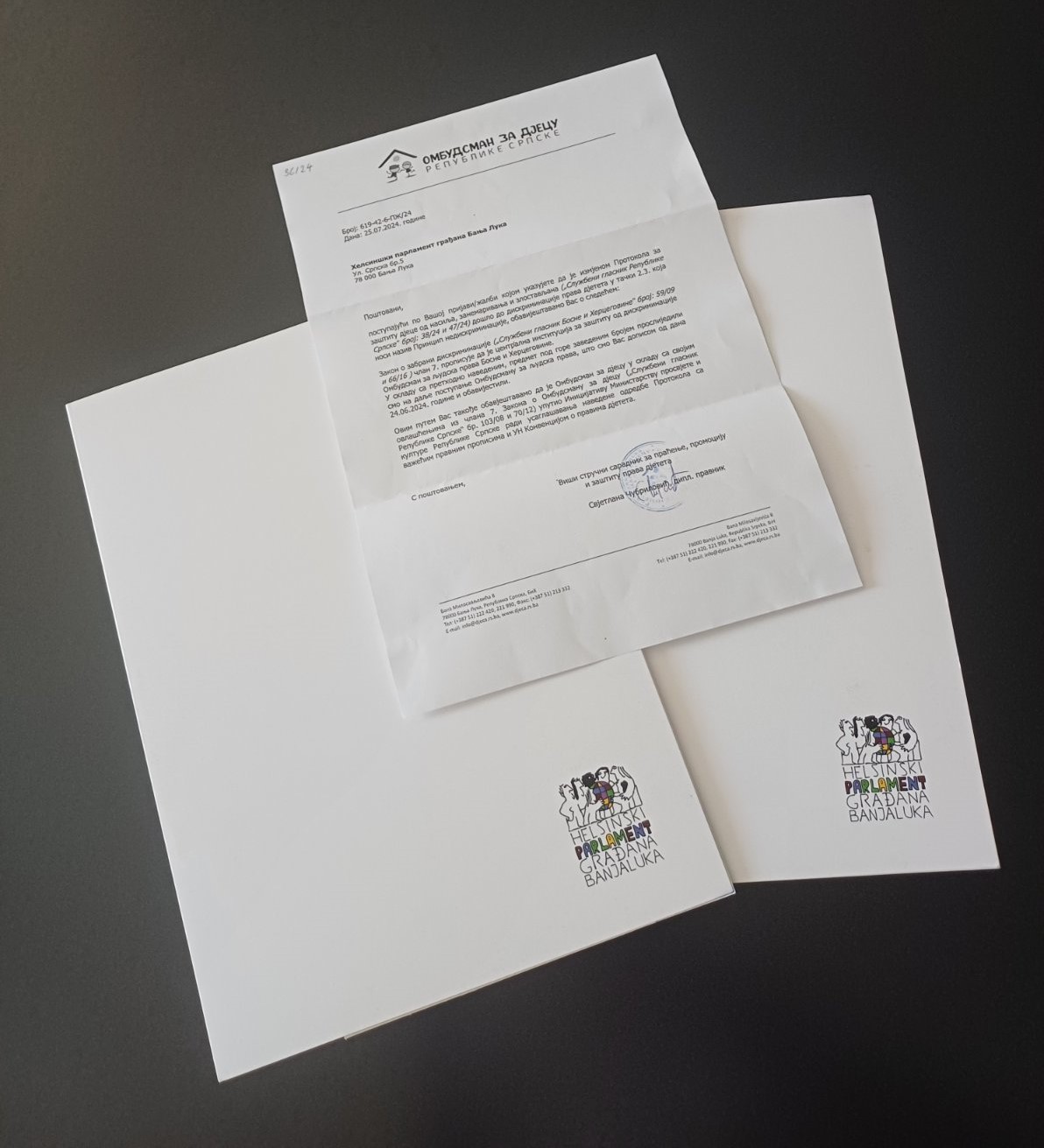OPEN LETTER IN SUPPORT OF CIVIL SOCIETY ORGANIZATIONS FROM REPUBLIKA SRPSKA
/BOSNIA AND HERZEGOVINA
Human Rights Houses Banja Luka, Belgrade and Zagreb and Sarajevo Open Centre voice their strong support for the civil society organizations from Republika Srpska [federal unit of Bosnia and Herzegovina] and condemns the efforts of Republika Srpska authorities which are endeavouring to restrict human rights, especially freedoms of association and expression and the operations of civil society organizations.
Namely, The Law on the Special Register and Publicity of the Work of Non-Profit Organizations [hereinafter: the AFI (Agents of Foreign Influence) Law], which is in the form of a draft, has been submitted to the National Assembly of Republika Srpska for the parliamentary procedure.
The AFI Law will establish a special Register of non-profit organizations incorporated and registered in Republika Srpska which are fully or partially financed by other states, their bodies or their authorized representatives, international and foreign organizations, foreign citizens or registered non-governmental organizations funded from abroad. The NGOs that receive money from abroad would be registered in this Register as “agents of foreign influence”.
The AFI Law would endanger the work of NGOs, since the provisions of this law are often vague, unspecified and insufficiently explained. Also, the AFI Law does not comply with many international instruments for the protection of human rights, as well as domestic constitutions and laws in Republika Srpska/Bosnia and Herzegovina. A special problem is that the AFI Law goes directly against human rights defenders and the Declaration on the Right and Responsibility of Individuals, Groups and Organs of Society to Promote and Protect Universally Recognized Human Rights and Fundamental Freedoms, especially articles 3 and 13.
Marking NGOs as “agents of foreign influence” will create a risk of stigmatization of certain NGOs, and affect their legitimate activities, impact their actual operations, and it could discredit their activities in the eyes of others, including their beneficiaries and the public.
Also, the stigma of being “agents of foreign influence” can lead to physical attacks on stigmatized NGOs, as an atmosphere of fear has already been created and is still in rising in Republika Srpska, where the authorities incite citizens against the NGO sector accusing it of undermining the state, the government and the ruling party in Republika Srpska, labelling NGO activists “enemies of the people” and “foreign mercenaries”. Legal provisions referred to in the AFI Law would only reinforce this.
The scope of the activities referred to in the AFI Law that the NGOs must abstain from is inconsistent with the predictability requirement since it will be very difficult for the NGOs to assess which types of activities or advocacy are illegal. Thus, advocating for the adoption or amendment of existing laws could very easily be interpreted as an illegal activity according to the AFI Law.
The possibility of imposing the fines contemplated by the AFI Law raises concerns given the lack of clarity of provisions and procedures across most of the AFI Law draft. The potential impact of such unpredictability will in itself curb the enjoyment of the right to freedom of association and freedom of expression and can cause smaller NGOs to close.
Also, inspections will have great powers and there are no safeguards to protect against abuse by the competent inspection authorities. There is a considerable uncertainty as to what can be legitimately required from NGOs. This would create an environment of excessive monitoring by the state which would hardly be conducive to the effective enjoyment of freedom of association.
Besides inspections, great powers will be given to the Minister of Justice. In the event that a non-profit organization acts contrary to the provisions of the AFI Law, the Minister of Justice can submit a request to the court for a ban/prohibition of work of that NGO.
Reporting obligations contemplated by the AFI Law will impose a significant and excessive financial and organizational burden to the NGOs and their staff and undermine their capacity to engage in their core activities.
Bearing in mind the above, the AFI Law represents a forceful attack on civil society in Republika Srpska, as well as the realization of basic human rights and freedoms, and after the criminalization of defamation, it represents another detrimental step back in terms of society democratization and the path of Bosnia and Herzegovina towards the European Union. We urge all competent authorities to honour the human rights standards by doing everything in their power to prevent the AFI Law from being adopted. If the AFI Law is passed, many non-profit organizations will be prevented from engaging in any work that is related to topics of public interest. Promotion and protection of equal and inalienable rights form the basis of the rule of law, peace and security. That is especially important for the situation in Bosnia and Herzegovina, where it must be ensured that human rights are not reduced and that the authorities act in accordance with democratic principles and human rights standards. If we fail to do so, the fragile democracy in Bosnia and Herzegovina can easily be shattered into pieces.





